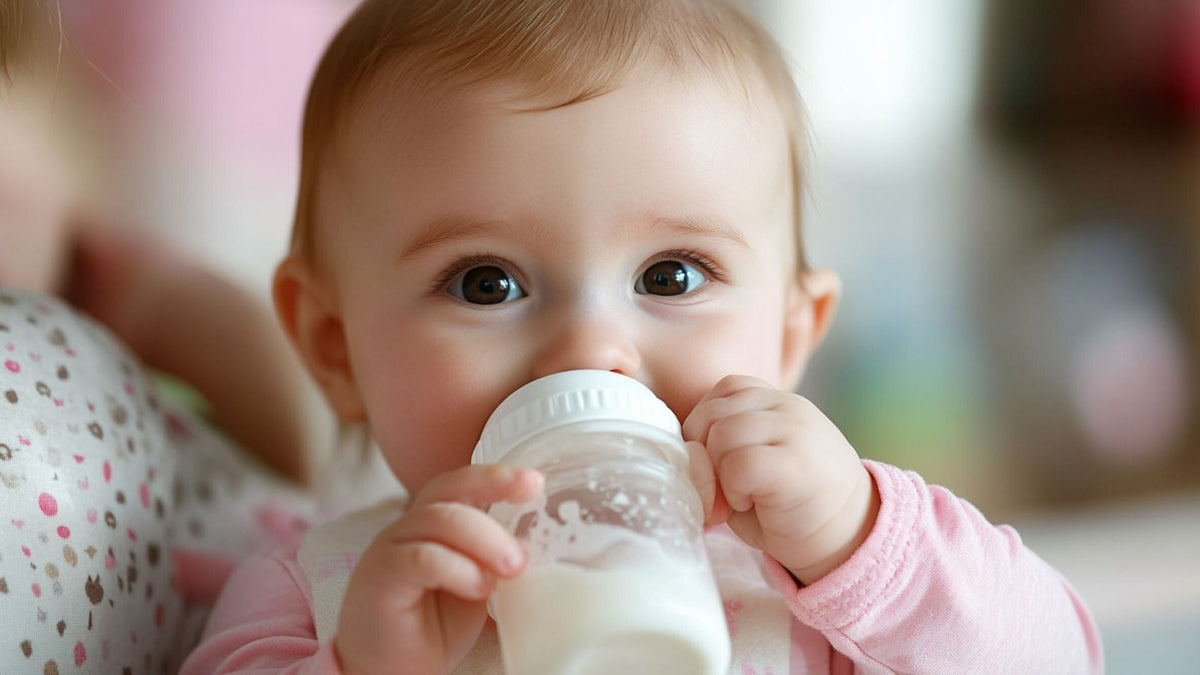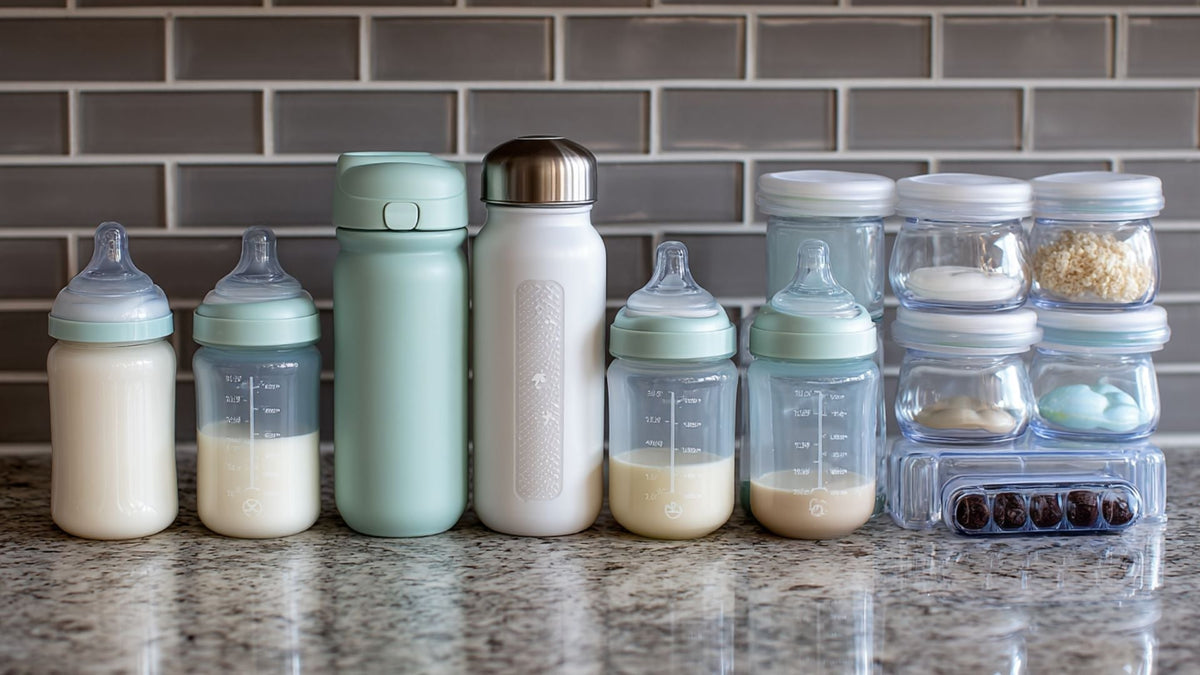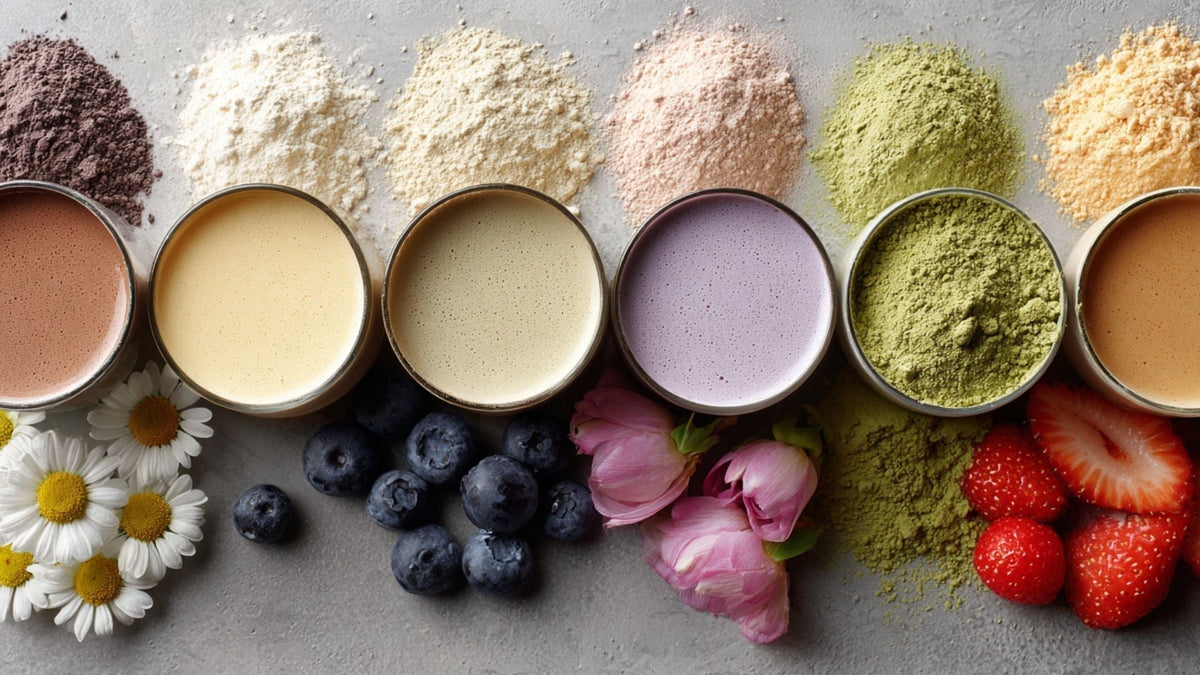European Formula Guides
Formula Feeding Schedule: How Much and How Often by Age
Discover a baby feeding chart by age, including formula amounts per feed and recommended feeding schedule for newborns and infants.
How Baby Formula Supports Immune System Development
Learn how baby formula supports immune system development with key nutrients. Compare formula vs breast milk for immunity in infants.
Why Parents Trust Our Organic Baby Formula – Real Reviews and Results
Discover why parents trust our organic baby formula. Learn the benefits, reviews, and what makes organic infant formula different from regular.
Best Organic Formula for Gassy Babies in 2025
Discover the best organic formula for gassy babies in 2025. Learn which baby formulas ease gas, constipation, and tummy discomfort.
Is Powder or Liquid Formula Better for My Baby?
Discover the difference between baby powder formula and liquid formula. Learn if powder or ready-to-feed is better for your baby’s nutrition and needs.
Does Organic Formula Help With Constipation?
Discover if organic baby formula helps with constipation. Learn the best formula for constipation and gas, and which formula eases newborn digestion.
How to Choose the Right Baby Formula Based on Your Baby's Age
Learn how to choose baby formula by age. Discover tips on choosing baby formula for newborns and infants to know what formula is right for your baby.
Can You Reheat the Baby Formula? Safe Practices Every Parent Should Know
Learn if formula can be reheated, how long a warmed formula bottle is good for, and safe ways to heat up formula without risks.
Can You Combine Breastfeeding and Formula? Pros & Tips
Learn how to mix breastfeeding and formula safely. Tips for combo feeding, introducing formula, and ensuring your baby gets proper nutrition.
The Difference Between Stage 1, Stage 2, and Stage 3 Baby Formulas Explained
Learn the difference between Stage 1, Stage 2, and Stage 3 baby formulas. Compare Kendamil, HiPP, and Holle options to choose the best for your infant.
Common Misconceptions About Formula Feeding
Discover the truth about formula-fed vs breastfed babies’ intelligence. Debunk the breastfeeding-intelligence myth and learn about common baby formulas.
Understanding Weight Gain in Formula-Fed vs. Breastfed Babies
Discover why formula-fed babies may gain weight differently than breastfed babies. Learn about fullness, growth, and feeding differences.
Lab-Grown Milk for Babies: Is This the Future of Infant Nutrition?
Discover how lab-grown milk is shaping the future of infant nutrition and its benefits compared to traditional formula and breast milk.
What Does Baby Formula Taste Like — And Why Some Babies Refuse It
Is your little one turning away from the bottle and crying again? This is a familiar situation for thousands of...
Is Your Baby Getting Enough Formula? Here's How to Know
Learn how much formula your baby should eat at 1-9 months with feeding charts by age and weight to ensure proper nutrition and growth.
How to Safely Prepare Formula on the Go
Learn how to make formula on the go, premix bottles, pack for outings, and safely prepare formula for a day out with your baby while traveling or on errands.
How to Store Baby Formula in Hot Weather
Learn what temperature is too hot for baby formula, how to tell if formula is bad, and how long powdered formula lasts in the heat.
Traveling Internationally with Baby Formula: TSA & Airline Rules
Learn how to travel with formula, TSA rules, and tips for flying with baby formula. Find out how much formula you can bring and if unopened cans are allowed.
How to Transition From Formula to Cow's Milk After Age 1
Learn when and how to transition from formula to whole milk, how much milk a 12-month-old needs, and if mixing formula and cow's milk is safe for babies.
Goat Milk vs. Cow Milk Baby Formula: Which One Is Right for Your Child?
Explore the pros and cons of goat milk vs cow milk formula. Learn if goat milk is better for babies and the key differences between these infant formula types.
Best Baby Formula for Vegan Parents
Explore top plant-based, vegan, and dairy-free baby formulas. Find the best vegan infant formula that's safe, organic, and ideal for newborns and toddlers.
What’s the Difference Between European and American Baby Formulas?
Learn why European baby formula is considered better, how ingredients compare, and the pros and cons of formula from Europe vs. American baby formula brands.
Using Baby Formula in Bottles vs. Sippy Cups: When to Switch
Learn when to introduce a sippy cup, how to transition from bottle, and if you can put formula in a sippy cup. Tips for breastfed and formula-fed babies.
The Role of Iron in Infant Formula: Too Much or Not Enough?
Learn how much iron should be in baby formula, the pros and cons of iron-fortified formula, Kendamil iron content, and if iron-free baby formula is safe.

























